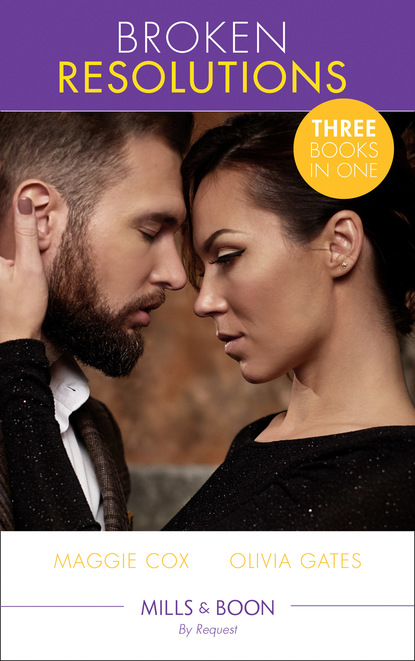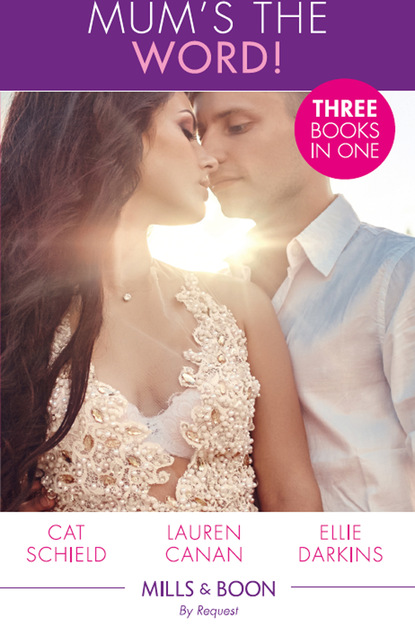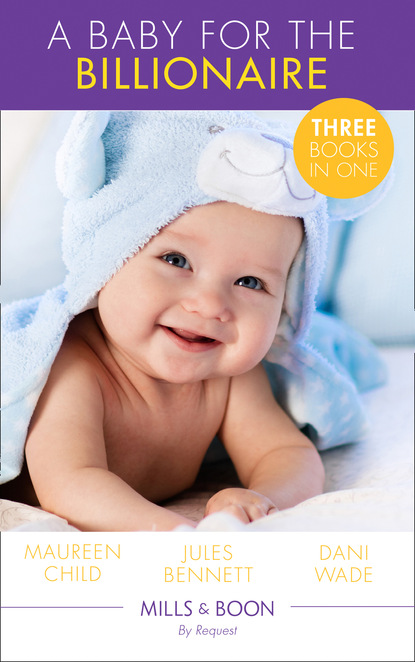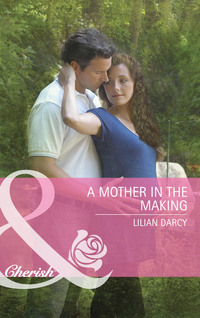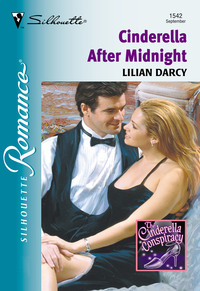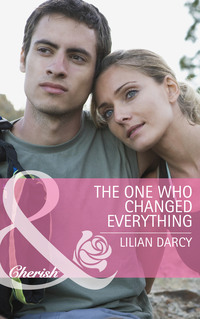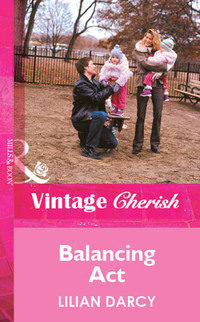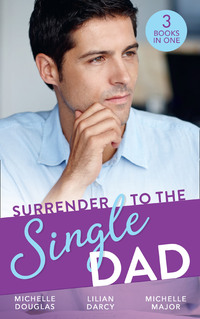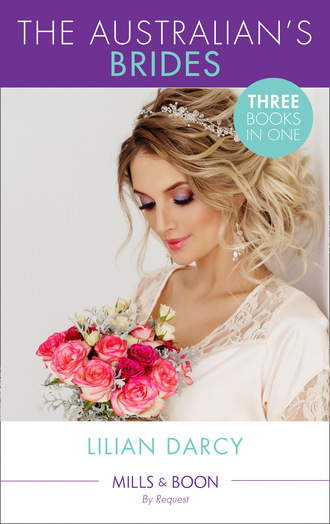
Полная версия
The Australians' Brides
Jac could see them now, however, and they were, oh, unbelievable. Blue and deep and smoky with a whole lot of emotions that thirty seconds ago she might have thought would be too complex for a down-to-earth South Australian cattle rancher.
Yes, Today’s Woman hadn’t confused the issue by laying any false clues. The outback sky, the cattle dog and the fierce-looking lizard on the rock, which Jac’s Australian friend Lucy had identified as a bearded dragon, had strongly suggested that the man was Callan Woods, cattle rancher, not Brian Snow, opal miner, or Damian Peterson, oil rigger, or any of the other seventeen Outback Wife-hunters, whose photos and biographical details had appeared in the February issue of the magazine.
There were a lot of lonely outback men in Australia, Today’s Woman claimed. It was a big country, where such men ran free in their far-flung and sometimes lonely occupations, but had trouble finding the right woman.
Jac wasn’t going to be that, she knew.
Not for this man.
But now wasn’t the time to tell him so.
“Callan, meet Jacinda,” Shay-from-the-magazine said brightly.
“Hi. Yeah,” was all he said.
He didn’t look happy to be here … which gave them one thing in common, at least.
“Would you believe how Jacinda matched you with your photo, Callan?” Shay gushed. “She actually identified the species of lizard sitting on the rock! Can you believe that?”
“Yeah? The bearded dragon?” A stirring of interest appeared in those incredible eyes as he belatedly reached out to shake Jac’s hand. He had a firm, dry grip, which he let go of a little too soon, as if he really, seriously, didn’t want her to get the wrong idea.
“The lizard was the reason I chose you as the one I wanted to meet,” Jac confessed. “My daughter thought he looked so cute.”
Too late, she realized that it wasn’t a very tactful line. Callan was supposed to be the cute one, not the reptilian wildlife on his land.
But Callan didn’t seem to care about her gaffe. Seemed relieved about it, in fact. “Yeah, my son Lockie loves them,” he said, his eyes getting brighter as he mentioned his boy. “He had one for a pet, but then he couldn’t stand to see it caged.”
“So you have kids, too?” Jac asked. She grabbed on to the subject immediately, since it might be the only conversational lifeline they could come up with together. “My daughter is four.”
Then she listened as Callan Woods told her, “I have two boys. Lockie’s ten. Josh is eight. We lost …” He stopped and took a breath. “That is, my wife died four years ago. I’m sorry. I should tell you that up front.” He lowered his voice and glanced at Shay, who was already moving on to her next introduction, as if tonight’s schedule was impossibly tight.
“It’s okay,” Jac told him.
He might not even have heard her reassurance. “I’m not really a … what was it … Wild Heart Looking For Love.” He parodied the words from the magazine so that Jac could almost see them spelled with capitals. “Couple of my mates wanted to take part in this and they roped me in, too, for a bit of support.”
He glanced over his shoulder and caught sight of two tall men. One of them was looking down at a short brunette who had her hand pinned to his arm. Callan gestured at the two men for Jac’s benefit. They were his “mates.” She knew the Australian expression by this time. “I’m doing it for them,” he said. “For Brant and Dusty. I’m not seriously looking for anyone. I should be up front with you about that.”
The mates were staring this way.
At Callan.
Jac was good at character motivation. She saw the anxious frowns on their faces and the way they assessed both their friend and Jac herself, and she recognized the truth at once, now that this man had told her about his loss.
Callan was doing it for them?
No, it was the other way around. Brant and Dusty were doing it for him.
She heard him swear under his breath and understood the painful way his own words must be echoing in his head. My wife died four years ago. She hated saying it, too. Kurt and I are divorced now. It felt as if you were ripping open your clothing to show total strangers your surgical scars.
“It’s okay,” she repeated quickly to Callan Woods. “This is a very artificial situation, isn’t it? Anyone would be crazy to hold out serious hopes of meeting the right person, no matter how much they were looking for it. But I don’t think that makes it a pointless exercise. You know, just to get a bit of practice … or … or validation, maybe. I’m divorced. And it was a horrible divorce.” See, I have scars, too. “I actually can’t think when I last talked to a man I don’t know, purely for the pleasure of making some contact.”
He nodded, but didn’t make a direct reply. Maybe he was better at talking to his rust-colored dog. After a few seconds of silence, he said, “You’re not Australian.”
“No. The accent’s a giveaway, isn’t it?” She smiled, but he didn’t smile back.
“But you’re living here?” he said.
“No, again. On vacation. Staying with an Australian friend I met in California a few years ago. Lucy. She’s great. She’s babysitting my daughter tonight. She was the one who suggested I try that photo-matching thing in the magazine, just for fun. Most of them were pretty easy.”
“I guess it made sense, added more interest, having the magazine turn it into a kind of contest.”
“And, yes, it was fun,” Jac agreed. “I’m not sorry I did it.”
Oh.
Really?
Since when?
She’d spent the first twenty minutes of the cocktail party feeling deeply sorry that she’d given in to such an insane impulse at Lucy’s prompting, but at some point very recently that had changed. The blue eyes? The lizard? The fact that Callan Woods wasn’t serious about this, either?
“No,” Callan agreed. “I wouldn’t have done it, except for my mates, but, yeah, so far it’s turned out not to be as bad as I thought.”
Jac saw the expression in his eyes. Definitely relief. An after-the-dentist kind of relief that she understood and shared, and it felt nice to share the same emotion with a man again, even if it was a man she didn’t know.
“When do you fly home?” he asked.
“Tuesday. Three days from now. We’ve been here a month, and I can’t believe the time has flown so fast. I’ve loved all of it, and so has Carly.”
“Tuesday.” He relaxed a little more. “So you’re obviously not serious about tonight, either.”
“No.”
“Thank heavens we got that established nice and early!”
They grinned at each other, grabbed a canapé each from a passing tray and somehow kept talking for the next two hours without quite noticing how quickly the party went by.
“Mine? A washout,” Brant said over a state-of-the-art weekend urban café brunch the next morning, in answer to Dusty’s question. “A total washout. She had a chip on her shoulder so big I’m surprised she could stand straight. When I told her that being single didn’t bother me all that much, she acted as if I’d personally insulted her. She gave every one of my questions a one-syllable answer and couldn’t come up with a single bit of small talk when it was her turn. Thank the Lord you didn’t get her, Call.”
“Why me?” Callan asked.
Brant frowned. “Why you, what?”
“Why is it good that I didn’t get her? You think I’m particularly incapable of dealing with women with big shoulder chips and no small talk? Why?”
“Mine was great,” Dusty cut in before Brant could answer, but not before he and Brant had exchanged a strange, uneasy, lightning-fast look. “A genuine, decent woman who knows what she wants and doesn’t mind saying so. There’s a good chance we’ll stay in touch. I’m telling you, it was a heck of a lot better than I expected, the whole thing.” He added quickly and awkwardly, “And, you know, I thought it was a promising idea from the start, so …”
Hang on a minute.
Dusty had a look on his face that Callan recognized. It spoke loudly of his awareness that he wasn’t a very good liar, but what was he lying about?
Callan began slowly, putting the puzzle pieces in place as he spoke, “So you don’t mind that you’re single, Brant, and you’re suddenly pretending you thought this was a promising way for an isolated outback cattleman to meet a future wife, Dusty, even though four seconds ago you pretty much stated the opposite ….” He paused, watched the guilty expressions on his mates’ faces. “Can one of you tell me the real reason we put ourselves through this?”
He wasn’t stupid.
He didn’t really need their answer.
Which was good, because they both stumbled through some garbled piece of bull dust and didn’t actually give him one.
While the stumbling thing was still happening, he thought about whether he was angry with them—whether he wanted to be angry, whether he even had the energy.
Brant and Dusty had set him up in the worst way. They’d conspired behind his back. They’d conned him into putting his picture and his life story and his heartfelt feelings in a national women’s magazine. Why? In the hope that he might meet someone? Or … or … start to believe in the possibility of someday meeting someone? Or … or … even just enjoy himself for a night and get a bit of an ego tickle from the bunch of eager women’s letters the magazine had started sending him?
Angry about it?
To his own surprise he found himself grinning, after a moment. When all was said and done, they were his best friends. They meant well. They would never let him down. They were idiots, and he liked them.
“Serves you bloody right if yours was a washout, Branton Smith. Serves you right, Dustin Tanner, if you never hear from yours again. Me, like a prize con victim, thought I was helping you out, going along for the ride. Turns out I wasn’t, and I’m not looking for anything beyond … yeah … keeping my boys happy, but I had a good time last night, talking to Jacinda.”
He knew it couldn’t go anywhere. He didn’t want it to, and neither did she. That was probably the only reason they’d been able to talk to each other so freely in the first place—because of the safety valve of her imminent departure and the glaring nature of his loss and her divorce.
She looked nothing like Liz, and that was a big plus, also. Where Liz had been compact and strong, Jacinda was long and willowy. She had big, luminous gray eyes, not twinkling, sensible green ones. She had wild dark hair, in contrast to Liz’s neat, silky waterfall of medium blond, and an even, magnolia-olive skin tone, instead of fairness and freckles. Voices, accents, backgrounds, all of it was different and therefore much safer. Safe enough for him to feel as if Jacinda could be a friend, a new kind of friend, if he ever needed one.
This was how he saw her this morning—someone he might turn to, sometime in the future, for advice about his boys, or for a city woman’s perspective.
He even had the address of Jacinda’s friend Lucy in Sydney, and Jacinda’s e-mail address back in America, and she had his, but he wasn’t going to tell Brant and Dusty that. He just gave them another grin—a more teasing and evasive grin this time—and started talking about what they might do today, in each other’s company, before heading out of Sydney and back to land and animals and family tomorrow.
And he felt better—easier in his heart—than he had in quite a while.
Jac honestly hadn’t expected to see Callan again, even though they’d exchanged addresses.
His timing wasn’t great. He showed up at seven in the evening, when she was in the middle of getting her daughter ready for bed. She and Carly had eaten, her friend Lucy was out tonight and now Carly was tired. She was tired enough to make a fuss about getting out of the bath even when her skin had gone wrinkly, so that Jac was wet all down her front when she encountered Callan at the apartment door. A minute or two later, Carly was suddenly not too tired to want to investigate the gift he’d brought for her immediately.
“It’s just a little thing,” Callan told Jac quietly, as Carly sat on the floor in her pink-stripes-and-teddy-bears pajamas and ripped at the bright paper. For Jac herself, Callan had brought flowers—a huge, gorgeous bunch of Australian things whose names she didn’t know. “A paint-your-own-boomerang kit. Hope it’s not more trouble than it’s worth!”
“Could be, if she wants to sit down and paint it right now.” She smiled to soften the statement. He had kids. He should understand. She added in a lower tone, “You didn’t have to do this.”
“I know, but I woke up this morning and—” He stopped and tried again. Came up with just three words. “I wanted to.”
“You woke up this morning, but it’s seven in the evening, now. Did it take you all day to make up your mind that you wanted to?” she teased. She’d decided last night that he had a sense of humor, but wanted to test this perception in a cooler light.
“Yep,” he answered. “That’s about right.” His blue eyes glinted with amusement like sunshine on water. “Look, I guess it is getting late, but we could still eat somewhere, if you want.”
So she had to tell him about Lucy being out, and Carly needing bed, and that she and her daughter had eaten already anyhow.
He nodded. “I should have called. You’re right. I did leave it too late.”
She thought about asking if he wanted coffee or a drink, but chickened out. Pick a character motivation. She didn’t want to kiss him and discover she liked it—or discover she didn’t. She didn’t want to learn the hard way that they had nothing left to talk about, after those two easy hours last night. She definitely didn’t want to send the wrong message about how lucky he might get by the end of this evening.
No!
“Thank you,” she said instead. “The flowers are beautiful, and the gift for Carly. I really must get her into bed, now, or she’ll be a mess tomorrow. She was up before six.”
He looked at her wet front and her messy hair. She saw at once from his face that he’d read the situation correctly, and that he wasn’t the kind of man to argue. Instead, he just gave her his courteous hope that she and Carly would have a good flight home, told her that if she ever needed anything—needed him, needed to write or phone—that she shouldn’t hesitate.
“I mean that.”
And Jac believed him. Didn’t plan to put her trust in his words to the test, but found that the simple fact of believing him felt good—better, after Kurt, than she would have imagined possible.
Two days later, Jacinda and Carly’s plane touched down at Los Angeles International Airport and reality kicked into their lives once more.
Jac had allowed herself and her daughter a day to get over the worst of their jet lag, but then Carly was back in full-day preschool, and Jac was back on the script-writing production line for her soap. The moment she walked into the writers’ conferencing suite, a month on the opposite shore of the Pacific Ocean seemed to shrink to the size of a drop in that same ocean and she felt as if she’d never been away.
She didn’t want to write.
She couldn’t write.
Why the hell had she thought that she’d be able to write?
She’d picked up the mail held for her at the post office on her way in, and among the bills and credit card solicitations were two birthday cards from Kurt, one for herself and one for Carly, since they’d both been February babies and had celebrated while they’d been away. His handwriting on the envelopes, alone, would have been enough to paralyze her, let alone what he’d written to her inside.
Jacinda, sweetheart, don’t spend Carly’s birthday out of the country next year, please. Trust me, you can’t afford that kind of statement. Emotionally, financially. You just can’t, and you should know that. I’m going to be pretty busy this spring, and I’ll need Carly in my life to give me some balance. The network is rethinking its programming, and I’ll be micromanaging certain areas.
Don’t make the mistake of thinking I’m too busy to catch my own shows, even when they’re no longer my day-to-day concern. Reece and Naomi have some great scenes coming up—taut, edgy dialogue written while you were away by a young male writer who’s incredibly fresh. Elaine will be taking a good look at them with me. She’s been wanting to juggle the team for a while now.
Happy thirty-second birthday. Hope you’ve used the break as an opportunity to clarify your priorities. Deepest regards, Kurt.
This was what blocked her so badly. This kind of communication from Kurt. All the time. Phone calls, e-mails, letters from his lawyer, and even innocent comments from Carly after she’d spent an afternoon with him and his new wife. The threats were always so carefully veiled that they almost sounded like reassurances.
He changed his mind about what he wanted, and then the threats changed, as if to suggest that Jacinda should have been two steps ahead of his thinking all along. The reminders of his power and control, and his ability to wreak both personal and professional consequences pricked at Jacinda like poisoned barbs.
She had custody of Carly now, yes, because so far it had suited Kurt to utter lines such as, “All I want is my daughter’s best interests,” but she knew that if he wanted the situation to change, he’d stop at nothing to achieve his goal. She also knew that even if he had no intention of ever suing for custody of their child, he’d hang the possibility over her head like a sword on a fraying thread purely because of the power it gave him.
She read the card over again, to convince herself that the sinister tone was all in her head, but it didn’t work. She knew Kurt. She’d been married to him for seven years. He’d risen higher and higher in the universe of network television, and yet she knew he would never be too big or too important to let go of any of the dozens of chains of control that he loved to yank. Her own chain, Carly’s, Elaine’s …
Jacinda saw Elaine’s concerned look in her direction, and quickly brought up the Reece and Naomi file on her computer. She had a summary of the scene she was supposed to write this morning. “Reece and Naomi meet at their favorite restaurant and argue over whether to continue their affair.”
She centered REECE near the top of the page, pressed Enter, then Tab, then typed the word Hi. She managed to get NAOMI to say hi, also, but for an hour after that, the screen stayed blank, while the words taut, edgy and fresh, in Kurt’s spiky handwriting, floated in front of her eyes. She felt ill to the pit of her stomach, and when Elaine took her for a pep talk over lunch, she couldn’t eat a bite.
Elaine didn’t do much better. “I have to be honest with you, Jac,” she said, sounding tense. “I can’t run this kind of interference for you much longer. You know Kurt.”
“Yes, I do.”
“He has me walking on quicksand, and he knows it. We have the mortgage, we have school fees …”
There was an awkward pause, and Jac knew what she had to say.
So she said it. “Elaine, don’t ruin your own career trying to protect mine.” And she saw the relief in the senior writer’s eyes.
When she got back to her computer, she discovered that there was an e-mail from Callan Woods waiting for her. Until she caught sight of her daughter’s smile of greeting at preschool three hours later, it was the only pleasurable, decent, safe moment in her entire day.
Chapter Three
The mail flight would get here at any time now.
Beside the packed red dirt of the airstrip, Callan sat in the driver’s seat of his four-wheel-drive. He had the door open and the windows down to catch the breeze. In mid-April, the dry daytime heat in the North Flinders Ranges could still be fierce, even though it was technically autumn.
Lockie and Josh were back at the Arakeela Creek homestead doing their morning schoolwork via the Internet and the School of the Air. Sometimes when there was a visitor coming, Callan would give them a morning off so that they could come and meet the plane, but this time he’d said no.
He heard the buzz of the plane in the distance. It came in low with the arid yet beautiful backdrop of the mountains behind it, and he felt an odd lurch in his stomach as it got closer.
Was he looking forward to this arrival?
Like so many of his emotions since Liz’s death, this one shifted back and forth, giving him no consistent answer.
Callan didn’t know why Jacinda and her daughter were coming to Arakeela Creek, nor how long they wanted to stay, but he did know that Jacinda was a mess, that she wouldn’t have asked if she’d felt she had any other choice, and that he couldn’t even have considered turning down her desperate plea.
They’d been e-mailing each other for six weeks. A couple of times he’d thought about calling her, but the idea had panicked him too much. The e-mail correspondence was good. Nice. Unthreatening. A phone call would have been a stretching of boundaries that he wasn’t ready for and didn’t see the point in, since their lives were so far apart, in so many ways.
He honestly hadn’t expected anything to come out of the magazine thing, and yet something had—a small, new window into a different world, a friendship at a safe distance. He was also in e-mail contact with two of the Australian women who’d written to him, via the magazine, but in contrast to what he’d developed with Jacinda, those exchanges so far didn’t feel nearly as honest or as easy, and he suspected that either he or the women themselves would soon let them dwindle away. Meanwhile, letters from more women continued to arrive.
Why had his e-mails to and from Jacinda felt so much better?
Because she was a writer by profession, and her natural fluency smoothed their exchanges in both directions?
Maybe.
Sometimes, she hadn’t been fluent at all.
Meanwhile, Dusty seemed pretty happy with his own outcome to the magazine story and the cocktail party. He and that small brunette, Mandy, were still in touch. He was even talking about flying back down to Sydney to meet up with her again, and had written polite notes to the other women who’d contacted him to tell them thanks, but I’m not looking anymore. Dusty was the same with horses—only ever bet on one in each race, and always bet to win.
Brant was a lot less happy. He’d been receiving way more letters than he wanted. More than Callan, apparently, and Callan had already received quite a few. Since Brant’s property was closer to Sydney and Melbourne, where most of the letters came from, he’d met and been out with a couple of the women who’d written.
So far he hadn’t been impressed.
Or hadn’t admitted to being impressed.
Possibly because at heart he was perfectly happy as he was. The whole magazine campaign had been Brant’s sister’s idea, Callan had learned.
The plane skimmed the ground at the far end of the airstrip, bounced up for a moment or two, then bumped down harder, keeping its wheels in contact with planet earth this time. It careened along at speed, its wings rocking a little, but gradually slowed to a sedate taxi, propellers still roaring.
Callan climbed out of his vehicle. He didn’t bother to shut the door or take the keys. Six weeks seemed, simultaneously, like a long time and like no time at all. Would Jacinda look the way he remembered?
It hadn’t been her physical attributes that had drawn him, and yet the memories were all good. Big eyes, sparkly smile, an emotional warmth that showed in her whole body. Rose-colored spectacles, maybe? At a closer acquaintance, would a living, breathing, three-dimensional Jacinda Beale have anything in common with the woman who’d e-mailed him almost every day since they’d met?
Her e-mails had been far briefer over the past couple of weeks, he remembered. Stilted, almost. Cryptic, definitely. Not fluent at all. She’d said she didn’t want to talk about it, that she couldn’t talk about it, but that she was having some problems.
Then there had been total silence for several days. He’d even sent her a “Jacinda, are you okay?” message, which he’d regretted a split second after hitting Send.


